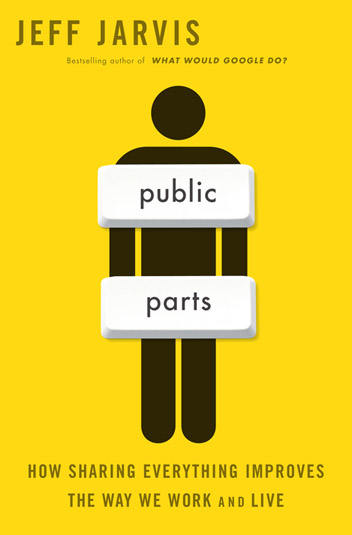Articles by Adam Thierer 
 Senior Fellow in Technology & Innovation at the R Street Institute in Washington, DC. Formerly a senior research fellow at the Mercatus Center at George Mason University, President of the Progress & Freedom Foundation, Director of Telecommunications Studies at the Cato Institute, and a Fellow in Economic Policy at the Heritage Foundation.
Senior Fellow in Technology & Innovation at the R Street Institute in Washington, DC. Formerly a senior research fellow at the Mercatus Center at George Mason University, President of the Progress & Freedom Foundation, Director of Telecommunications Studies at the Cato Institute, and a Fellow in Economic Policy at the Heritage Foundation.
In my ongoing work on technopanics, I’ve frequently noted how special interests create phantom fears and use “threat inflation” in an attempt to win attention and public contracts. In my next book, I have an entire chapter devoted to explaining how “fear sells” and I note how often companies and organizations incite fear to advance their own ends. Cybersecurity and child safety debates are littered with examples.
In their recent paper, “Loving the Cyber Bomb? The Dangers of Threat Inflation in Cybersecurity Policy,” my Mercatus Center colleagues Jerry Brito and Tate Watkins argued that “a cyber-industrial complex is emerging, much like the military-industrial complex of the Cold War.” As Stefan Savage, a Professor in the Department of Computer Science and Engineering at the University of California, San Diego, told The Economist magazine, the cybersecurity industry sometimes plays “fast and loose” with the numbers because it has an interest in “telling people that the sky is falling.” In a similar vein, many child safety advocacy organizations use technopanics to pressure policymakers to fund initiatives they create. [Sometimes I can get a bit snarky about this.] Continue reading →
Reps. Jackie Speier (D-Calif.) and Steve Womack (R-Ark.) have introduced “The Marketplace Equity Act,” which would open the floodgates to anything-goes State-based taxation of the Internet and interstate commerce. The bill essentially sacrifices constitutional fairness at the alter of “tax fairness.” Building on concerns raised by state and local officials as well as “bricks-and-mortar” retailers, Speier and Womack claim that, as “a matter of states’ rights” and “leveling the playing field,” Congress should bless state efforts to impose sales tax collection obligation on interstate (“remote”) companies.The measure would allow States to do so using one of three rate structures: (1) a single blended state/local rate; (2) a single maximum State rate; or (3) the actual local jurisdiction destination rate + the State rate (so long as the State “make(s) available adequate software to remote sellers that substantially eases the burden of collecting at multiple rates within the State.”)
This builds on a long-standing effort by some States to devise a multistate sales tax compact to collude and impose taxes on interstate transactions. In the Senate, Sen. Dick Durbin (D-IL) has floated legislation (“The Main Street Fairness Act”) that would bless such a state-based de facto national sales tax regime for the Internet.
There is a better way to achieve fairness without sacrificing tax competition or opening the doors to unjust, unconstitutional, and burdensome state-based taxation of interstate sales. In a new Mercatus Center essay,”The Internet, Sales Taxes, and Tax Competition,” Veronique de Rugy and I argue that: Continue reading →
 Over the weekend, Janet Morrissey of The New York Times posted an excellent article on the U.S. government’s continuing crackdown on Internet gambling. (“Poker Inc. to Uncle Sam: Shut Up and Deal“) Ironically, her article arrives on the same week during which PBS aired the terrific new Ken Burns and Lynn Novick documentary on the history of alcohol prohibition in the United States. It’s a highly-recommended look at the utter hypocrisy and futility of prohibiting a product that millions of people find enjoyable. If there’s a simple moral to the story of Prohibition, it’s that you can’t repress human nature–not for long, at least, and not without serious unintended consequences. Which is why Morrissey of the Times notes:
Over the weekend, Janet Morrissey of The New York Times posted an excellent article on the U.S. government’s continuing crackdown on Internet gambling. (“Poker Inc. to Uncle Sam: Shut Up and Deal“) Ironically, her article arrives on the same week during which PBS aired the terrific new Ken Burns and Lynn Novick documentary on the history of alcohol prohibition in the United States. It’s a highly-recommended look at the utter hypocrisy and futility of prohibiting a product that millions of people find enjoyable. If there’s a simple moral to the story of Prohibition, it’s that you can’t repress human nature–not for long, at least, and not without serious unintended consequences. Which is why Morrissey of the Times notes:
And so the poker world now finds itself in a situation many liken to Prohibition. America didn’t stop drinking when the government outlawed alcoholic beverages in 1919. And, in this Internet age, it won’t be easy to prevent people from gambling online, whatever the government says. “It’s a game of whack-a-mole,” says Behnam Dayanim, an expert on online gambling and a partner at the Axinn Veltrop & Harkrider law firm. “They’ve whacked three very large moles, but over time, more moles will pop up.”
Exactly right (except that it should be “whac” not “whack”! There’s no K in whac-a-mole.) It reminds me of the paper that my blogging colleague Tom Bell penned back in 1999 for the Cato Institute with its perfect title: “Internet Gambling: Popular, Inexorable, and (Eventually) Legal.” As Tom noted back then: Continue reading →
[NOTE: The following is a template for how to script congressional testimony when invited to speak about online safety issues.]
Mr. Chairman and members of the Committee, thank you inviting me here today to testify about the most important issue to me and everyone in this room: Our children.
There is nothing I care more about than the future of our children. Like Whitney Houston, “I believe the children are our future.”
Mr. Chairman, I remember with fondness the day my little Johnny and Jannie came into this world. They were my little miracles. Gifts from God, I say. At the moment of birth, my wife… oh, well, I could tell you all about it someday but suffice it to say it was a beautiful scene, with the exception of all the amniotic fluid and blood everywhere. I wept for days.
Today my kids are (mention ages of each) and they are the cutest little angels on God’s green Earth. (NOTE: At this point it would be useful for you to hold up a picture of your kids, preferably with them cuddling with cute stuffed animals, a kitten, or petting a pony as in the example below. Alternatively, use a picture taken at a major attraction located in the Chairman’s congressional district.) Continue reading →
I’m currently finishing up my next book. It addresses various strands of “Internet pessimism” and attempts to explain why all the gloom and doom theories we hear about the Internet’s impact on modern culture and economy are not generally warranted. A key theme of my book is that most Internet pessimists overlook the importance of human adaptability in the face of technological change. The amazing thing about humans is that we adapt so much better than other creatures. We learn how to use the new tools given to us and make them part of our lives and culture. The worst situations often bring out the most creative, innovative solutions. Media critic Jack Shafer has noted that “the techno-apocalypse never comes” because “cultures tend to assimilate and normalize new technology in ways the fretful never anticipate.”
In a cultural sense, humans have again and again adapted to technological change despite the radical disruptions to their lives, mores, manners, and methods of learning. As Aleks Krotoski recently points out in her new Guardian essay, “How the Internet Has Changed Our Concept of What Home Is”: Continue reading →
 In his latest weekly Wall Street Journal column, Gordon Crovitz has penned a review of the new Jeff Jarvis book, Public Parts: How Sharing in the Digital Age Improves the Way We Work and Live. Gordon’s review closely tracks my own thoughts on the book, which I laid out last week in my Forbes essay, “Is Privacy Overrated?” Gordon’s essay is entitled “Are We Too Hung Up on Privacy” and he finds, like I do, that Jarvis makes compelling case for understanding the benefits of publicness as the flip-side of privacy. Instead of repeating all the arguments we make in our reviews here, I’ll just ask people go check out both of our essays if they are interested.
In his latest weekly Wall Street Journal column, Gordon Crovitz has penned a review of the new Jeff Jarvis book, Public Parts: How Sharing in the Digital Age Improves the Way We Work and Live. Gordon’s review closely tracks my own thoughts on the book, which I laid out last week in my Forbes essay, “Is Privacy Overrated?” Gordon’s essay is entitled “Are We Too Hung Up on Privacy” and he finds, like I do, that Jarvis makes compelling case for understanding the benefits of publicness as the flip-side of privacy. Instead of repeating all the arguments we make in our reviews here, I’ll just ask people go check out both of our essays if they are interested.
I did, however, want to elaborate on one thing I didn’t have time to discuss in my review of the Jarvis book. While I like the approach he used in the book, I thought Jarvis could have spent a bit more time exploring some the thorny legal issues in play when advocates of privacy regulation look to enshrine into law quite expansive views of privacy “rights.”
One of the things that both Crovitz and I appreciated about the Jarvis book was the way he tries to get us to think about privacy in the context of ethics instead of law. “Privacy is an ethic governing the choices made by the recipient of someone else’s information,” Jarvis argues, while “publicness is an ethic governing the choices made by the creator of one’s own information,” he says. In my review, I explained why this was so important: Continue reading →
Here’s a sharp editorial from The Economist about Internet governance entitled, “In Praise of Chaos: Governments’ Attempts to Control the Internet Should be Resisted.” In the wake of the recent Internet Governance Forum meeting, many folks are once again debating the question of who rules the Net? Along with Wayne Crews, I edited a huge collection of essays on that topic back in 2003 and it’s a subject that continues to interest me greatly. As I noted here last week, many of those who desire greater centralization of control over Net governance decisions are using the fear that “fragmentation” will occur without some sort of greater plan for the Net’s future. I believe these fears are greatly overstated and are being used to justify expanded government meddling with online culture and economics.
The new Economist piece nicely brings into focus the key question about who or what we should trust to guide the future of the Internet. It rightly notes that the current state of Net governance is, well, messy. But that’s not such a bad thing when compared to the alternative: Continue reading →
 In a speech today before the Internet Governance Forum entitled “Taking Care of the Internet,” Neelie Kroes, Vice President of the European Commission, responsible for the Digital Agenda for Europe, argued for “a globally coherent approach” to preserve “the global character of the Internet, and keep it from fragmenting.” That sounds good in theory but, as always, the devil is in the details. No one wants to see a highly balkanized Internet with each country and continent becoming a digital island cut off from the rest of Internet. On the other hand, if “a globally coherent approach” means layers of international red tape and bureaucracy, then fragmentation doesn’t sound so bad by comparison. That’s particularly true for those of us who live in countries to cherish principles of freedom of speech and free enterprise, as we do in the United States.
In a speech today before the Internet Governance Forum entitled “Taking Care of the Internet,” Neelie Kroes, Vice President of the European Commission, responsible for the Digital Agenda for Europe, argued for “a globally coherent approach” to preserve “the global character of the Internet, and keep it from fragmenting.” That sounds good in theory but, as always, the devil is in the details. No one wants to see a highly balkanized Internet with each country and continent becoming a digital island cut off from the rest of Internet. On the other hand, if “a globally coherent approach” means layers of international red tape and bureaucracy, then fragmentation doesn’t sound so bad by comparison. That’s particularly true for those of us who live in countries to cherish principles of freedom of speech and free enterprise, as we do in the United States.
For example, to most of the rest of the planet, America’s First Amendment is viewed as a pesky local ordinance that simply interferes with the ability of government to establish rules for acceptable speech and expression throughout society. What, then, does “a globally coherent approach” to Internet governance mean when America’s values conflict with other countries and continents? Does it mean that the U.S. should conform to a global norm as established by a “consensus body”? Who would that be? The OECD? The United Nations? The International Telecommunications Union? If so, it is clear that protections for freedom of speech and expression would be sacrificed on the altar of “consensus” or a “coherent global approach” to Net governance. Continue reading →
On Wednesday afternoon, it was my great pleasure to make some introductory remarks at a Family Online Safety Institute (FOSI) event that was held at the Yahoo! campus in Sunnyvale, CA. FOSI CEO Stephen Balkam asked me to offer some thoughts on a topic I’ve spent a great deal of time thinking about in recent years: Who needs parental controls? More specifically, what role do parental control tools and methods play in the upbringing of our children? How should we define or classify parental control tools and methods? Which are most important / effective? Finally, what should the role of public policy be toward parental control technologies on both the online safety and privacy fronts?
In past years, I spent much time writing and updating a booklet on these issues called Parental Controls & Online Child Protection: A Survey of Tools & Methods. It was an enormous undertaking, however, and I have abandoned updating it after I hit version 4.0. But that doesn’t mean I’m not still putting a lot of thought into these issues. My focus has shifted over the past year more toward the privacy-related concerns and away from the online safety issues. Of course, all these issues intersect and many people now (rightly) considered them to largely be the same debate.
Anyway, to kick off the FOSI event, I offered three provocations about parental control technologies and the state of the current debate over them. I buttressed some of my assertions with findings from a recent FOSI survey of parental attitudes about parental controls and online safety. Continue reading →
Yesterday, the Federal Trade Commission (FTC) released its long-awaited proposed revisions to the Children’s Online Privacy Protection rule (the “COPPA Rule”). Below I offer a few brief thoughts on the draft document. My remarks assume a basic level of knowledge about COPPA so that I don’t have to spend pages explaining the intricacies of this complex law and regulatory regime. If you need background on the COPPA law and rule, please check out this paper by Berin Szoka and me: “COPPA 2.0: The New Battle over Privacy, Age Verification, Online Safety & Free Speech.”
Dodging the COPA / Mandatory Age Verification Bullet
The most important takeaway from yesterday’s proposal involves something the FTC chose not to do: They agency very wisely decided to ignore some requests to extend the coverage of COPPA’s regulatory provisions from children under 13 all the way up to teens up to 18. An effort to expand COPPA’s “verifiable parental consent” requirements to all teens would have raised thorny First Amendment issues as well as a host of practical enforcement concerns. In essence, it would have required Internet-wide age verification of children and adults in order to ensure that everyone was exactly who they claimed to be online. We already had an epic decade-long legal battle over that issue when the constitutionality of the Children’s Online Protection Act (COPA), another 1998 law sometimes confused with COPPA, was tested many times over and always found to be in violation of the First Amendment.
Regardless, the FTC didn’t go there yesterday, so this concern is off the table for now. The agency deserves credit for avoiding this constitutional thicket. Continue reading →




 The Technology Liberation Front is the tech policy blog dedicated to keeping politicians' hands off the 'net and everything else related to technology.
The Technology Liberation Front is the tech policy blog dedicated to keeping politicians' hands off the 'net and everything else related to technology.